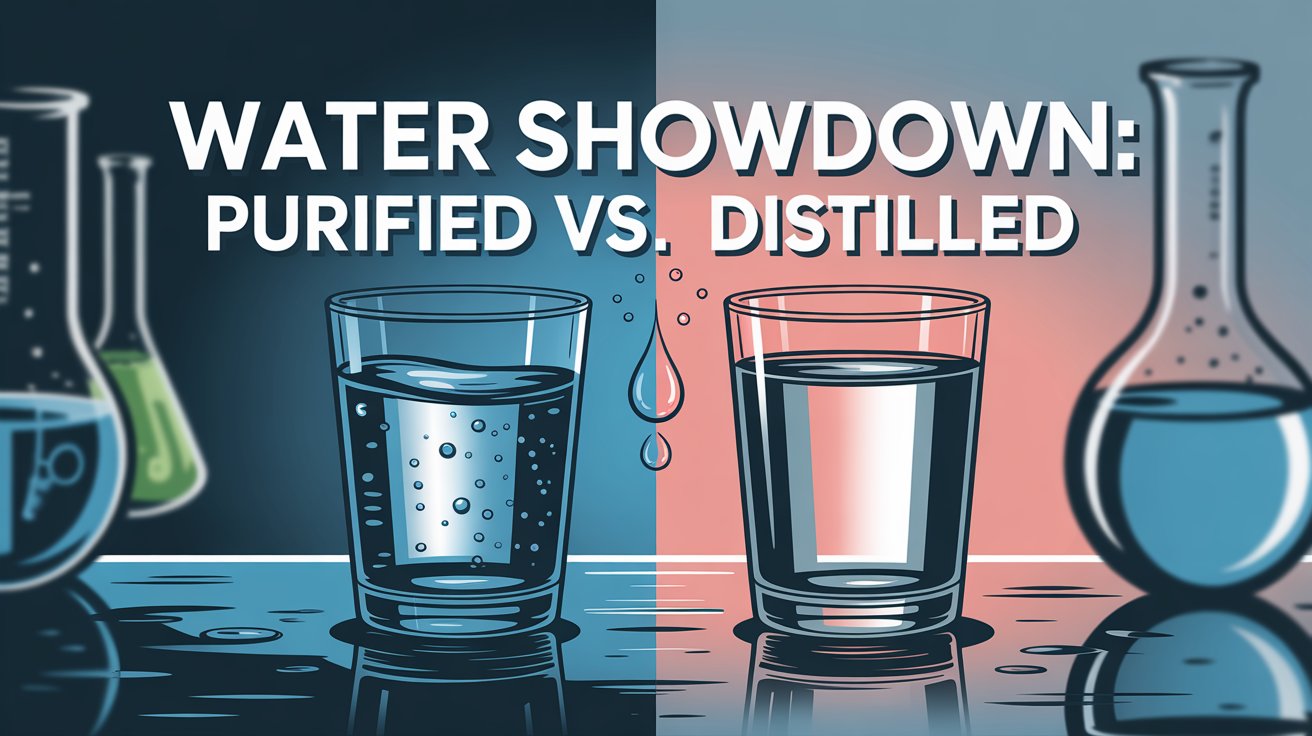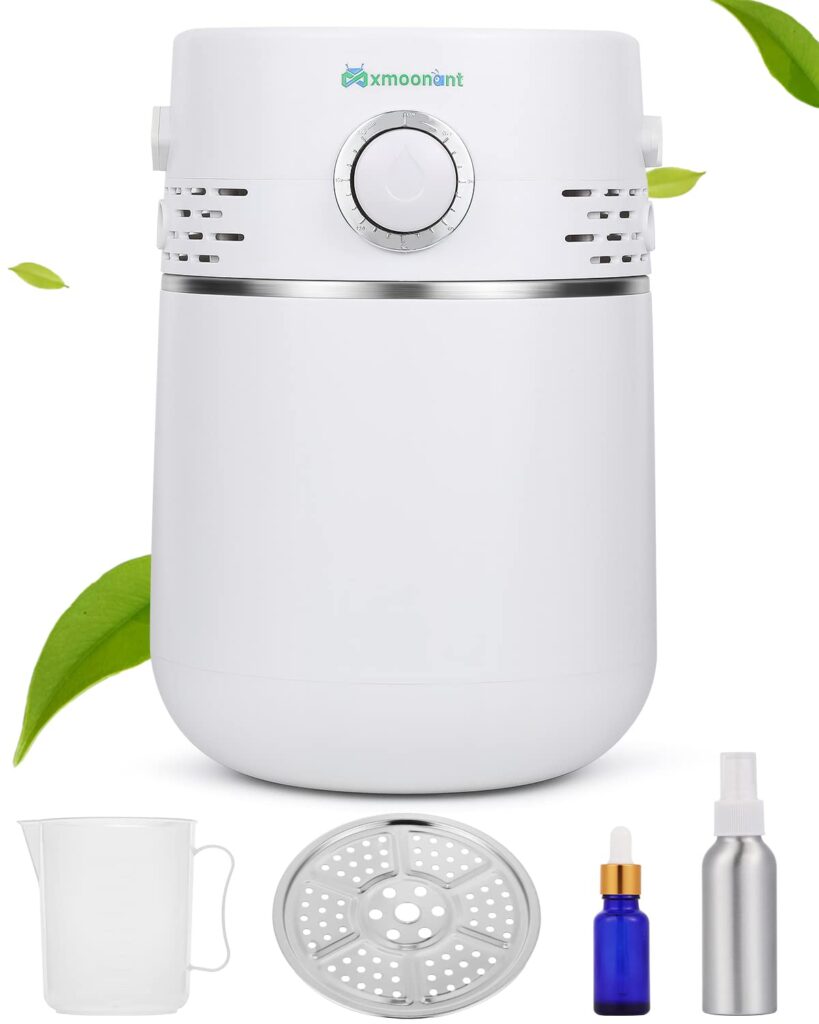When it comes to choosing the right type of water for your needs, it’s important to understand the difference between distilled and purified water. Distilled water is created through a process of distillation, which involves boiling water to create steam and then condensing the steam back into liquid form. This process removes impurities and minerals from the water, resulting in a very pure form of H2O. On the other hand, purified water can be created through a variety of methods, including reverse osmosis, deionization, and carbon filtration. These methods also remove impurities and minerals from the water, but they may not be as effective as distillation in producing a completely pure form of water.
In terms of purity, distilled water is often considered to be the purest form of water available. It is free from contaminants, minerals, and other impurities that may be present in tap water or other types of purified water. Purified water, on the other hand, may still contain trace amounts of minerals and impurities, depending on the specific purification method used. Both types of water can be used for drinking, cooking, and other household purposes, but there are some differences in their benefits and potential risks.
The Benefits of Distilled Water
Distilled water offers several benefits that make it a popular choice for many people. Because it is free from impurities and minerals, it is often recommended for use in medical devices, such as CPAP machines and humidifiers, as well as in steam irons and other appliances that can be damaged by mineral buildup. Distilled water is also commonly used in laboratories and industrial settings where purity is essential. Additionally, some people prefer to drink distilled water because they believe it is the cleanest and healthiest option available.
Another benefit of distilled water is its neutral pH level, which means it is neither acidic nor alkaline. This can make it a good choice for people with sensitive stomachs or digestive issues, as it is less likely to cause discomfort or exacerbate existing conditions. Additionally, because distilled water is free from minerals, it can be a good option for people who need to limit their intake of certain minerals, such as sodium or fluoride. Overall, distilled water offers a high level of purity and can be a good choice for certain applications and individuals.
The Benefits of Purified Water
While distilled water is known for its purity, purified water also offers several benefits that make it a popular choice for many people. One of the main benefits of purified water is its versatility. It can be produced using a variety of methods, which allows for flexibility in meeting different purity standards and requirements. This makes purified water suitable for a wide range of applications, including drinking, cooking, and industrial use.
Purified water can also be a good option for people who want to remove impurities and contaminants from their drinking water without removing all of the natural minerals. Some purification methods, such as reverse osmosis and carbon filtration, are effective at removing harmful substances while leaving beneficial minerals intact. This can result in a cleaner, safer drinking water that still provides essential nutrients and electrolytes. Additionally, purified water is often more readily available and affordable than distilled water, making it a convenient choice for everyday use.
The Potential Risks of Distilled Water
While distilled water offers several benefits, there are also some potential risks to consider. One of the main concerns with distilled water is its lack of minerals. Because it is completely free from minerals, distilled water may not provide the essential nutrients and electrolytes that are found in natural spring or mineral water. This can potentially lead to mineral deficiencies and electrolyte imbalances if distilled water is consumed as the primary source of hydration over an extended period of time.
Another potential risk of distilled water is its aggressive nature. Because it is so pure and free from minerals, distilled water can act as a solvent and leach minerals from the body and surrounding environment. This can be particularly concerning when using distilled water in medical devices or appliances that come into contact with the body, as it may lead to mineral depletion or damage to equipment over time. Additionally, some people find that distilled water has a flat or unappealing taste due to its lack of minerals, which can make it less enjoyable to drink than other types of water.
The Potential Risks of Purified Water
While purified water offers many benefits, there are also some potential risks to be aware of. One concern with purified water is the variability in quality and purity depending on the specific purification method used. Some purification methods may not effectively remove all contaminants and impurities from the water, leading to potential health risks if the water is consumed or used for medical purposes. Additionally, some purification methods may remove beneficial minerals from the water along with harmful substances, which can result in a less nutritious drinking water.
Another potential risk of purified water is the presence of disinfection byproducts (DBPs). When chlorine or other disinfectants are used to purify water, they can react with organic matter to form DBPs, which have been linked to potential health risks such as cancer and reproductive problems. While the levels of DBPs in purified water are typically low and regulated by government standards, some people may still prefer to avoid potential exposure by choosing alternative types of water. Overall, while purified water offers many benefits, it’s important to consider the potential risks and choose a purification method that provides the highest level of safety and quality.
Choosing the Right Type of Water for Your Needs
When it comes to choosing the right type of water for your needs, there are several factors to consider. If purity is your top priority and you need water for medical devices or sensitive equipment, distilled water may be the best choice due to its high level of purity and lack of minerals. However, if you’re looking for a versatile option that provides clean drinking water with beneficial minerals intact, purified water may be a better fit. It’s important to consider your specific needs and preferences when selecting a type of water, as well as any potential health risks or concerns associated with different purification methods.
In addition to considering purity and potential risks, it’s also important to consider practical factors such as availability and cost when choosing a type of water. Distilled water may be less readily available and more expensive than purified water in some areas, which can make it less convenient for everyday use. On the other hand, purified water may be more accessible and affordable while still providing a high level of purity for most applications. Ultimately, the best choice of water will depend on your individual needs and priorities, so it’s important to weigh the benefits and potential risks carefully before making a decision.
Making the Best Choice for Your Health
In conclusion, both distilled and purified water offer unique benefits and potential risks that should be considered when choosing a type of water for your needs. Distilled water is known for its high level of purity and lack of minerals, making it a good choice for medical devices and sensitive equipment. However, its lack of essential nutrients and aggressive nature may pose potential risks if consumed as the primary source of hydration over time. On the other hand, purified water offers versatility and convenience while still providing clean drinking water with beneficial minerals intact. However, the variability in quality and potential presence of disinfection byproducts should be taken into account when selecting a purification method.
Ultimately, the best choice of water will depend on your specific needs and priorities. If purity is your top concern and you need water for medical or industrial use, distilled water may be the best option. However, if you’re looking for a versatile and affordable option for everyday use, purified water may be more suitable. It’s important to weigh the benefits and potential risks carefully before making a decision in order to make the best choice for your health and well-being. By considering these factors and choosing a type of water that meets your needs while minimizing potential risks, you can ensure that you’re making a healthy choice for yourself and your family.



